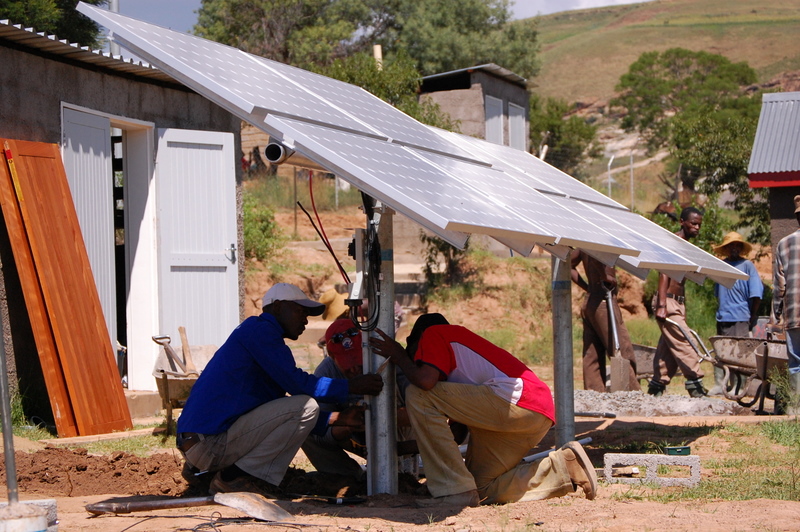Solar-Powered Clinics: Energizing Rural Health
 In many rural areas of sub-Saharan Africa, health clinics often operate without reliable electricity. This lack of power limits their ability to provide essential medical services, especially during emergencies throughout the night or for storing temperature-sensitive vaccines. Now, a growing number of communities across the region are turning to an innovative and sustainable solution: solar-powered clinics.
In many rural areas of sub-Saharan Africa, health clinics often operate without reliable electricity. This lack of power limits their ability to provide essential medical services, especially during emergencies throughout the night or for storing temperature-sensitive vaccines. Now, a growing number of communities across the region are turning to an innovative and sustainable solution: solar-powered clinics.
The Challenges of Powerless Clinics
According to USAID’s Power Africa initiative, nearly 60% of health facilities in sub-Saharan Africa lack access to electricity and many others operate with unreliable power. This energy gap poses serious challenges to health care delivery, especially in rural regions such as northern Uganda and remote areas of Sierra Leone. Without dependable electricity, clinics struggle to store vaccines, power essential medical equipment or provide emergency services after dark- putting countless lives at risk during childbirth, disease outbreaks and other critical situations.
Powering Hope Through the Sun
Solar energy is increasingly being used to bridge the energy gap in health care facilities across sub-Saharan Africa. Through partnerships with national governments and organizations such as the UNDP, solar-powered clinics are getting the equipment that includes photovoltaic panels, battery storage and lighting solutions. In Uganda, for example, UNDP has worked alongside the Ministry of Health to provide solar energy systems to health centers, enabling continuous operation of critical services such as maternal care, vaccine refrigeration and the use of diagnostic equipment.
Real Impact in Remote Communities
Results show promise when looking at the establishment of solar-powered clinics and overall solar power to health facilities in Sierra Leone. In partnership with the Ministry of Health has commissioned solar energy systems in 25 primary health units (PHUs), as part of a broader initiative to electrify facilities nationwide. This investment is enhancing service delivery by ensuring constant power for lighting, vaccine refrigeration and essential medical equipment. With improved infrastructure, clinics can now operate around the clock, which not only strengthens health care outcomes but also increases public confidence in local health services.
Organizations Leading the Charge
One notable organization making a difference is We Care Solar, founded in 2010. It provides compact, solar-powered suitcases designed specifically for maternal care. These suitcases include high-efficiency lights, medical device outlets and phone chargers- all powered by solar panels. To date, more than 10,000 health centers are equipped with Solar Suitcases in more than 20 countries ultimately serving more than 18 million mothers and newborns.
In 2022, the African Development Bank (AfDB) launched the Desert to Power initiative, aiming to provide solar electricity to 250 million people across 11 countries. A significant portion of this effort focuses on health infrastructure in rural zones.
Solar-Powered Clinics: The Future
Solar-powered clinics represent a practical, scalable solution to improve healthcare access across sub-Saharan Africa. By ensuring round-the-clock care, safe vaccine storage and reliable diagnostics, these clinics are helping to reduce mortality rates and build resilient health systems.
As efforts expand, solar energy may prove to be not only a sustainable energy source but a life-saving one.
– Vasara Mikulevicius
Vasara is based in West Bloomfield, MI, USA and focuses on Global Health for The Borgen Project.
Photo: Flickr
